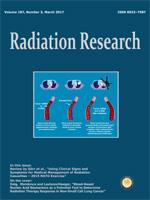Exposure of the heart to ionizing radiation can cause adverse myocardial remodeling. In small animal models, local heart irradiation causes persistent alterations in cardiac mitochondrial function and swelling. POLY-MVA is a dietary supplement that contains a palladium lipoic acid complex that targets mitochondrial complex I and has been demonstrated to have greater redox potential than lipoic acid alone. POLY-MVA improves mitochondrial function and anti-oxidant enzyme activity in the aged rat heart. In this study, we tested whether POLY-MVA can mitigate cardiac effects of ionizing radiation. Adult male rats were exposed to local heart X rays with a daily dose of 9 Gy for 5 consecutive days. Eighteen weeks after irradiation, POLY-MVA was administered orally at 1 ml/kg bodyweight per day during weekdays, for 6 weeks. Alterations in cardiac function as measured with echocardiography coincided with enhanced mitochondrial swelling, a reduction in mitochondrial expression of complex II, manifestations of adverse remodeling such as a reduction in myocardial microvessel density and an increase in collagen deposition and mast cell numbers. POLY-MVA enhanced left ventricular expression of superoxide dismutase 2, but only in sham-irradiated animals. In irradiated animals, POLY-MVA caused a reduction in markers of inflammatory infiltration, CD2 and CD68. Moreover, POLY-MVA mitigated the effects of radiation on mitochondria. Nonetheless, POLY-MVA did not mitigate adverse cardiac remodeling, suggesting that this tissue remodeling may not be alleviated by altering cardiac mitochondria alone. However, we cannot exclude the possibility that an earlier onset of POLY-MVA administration may have more profound effects on radiation-induced cardiac remodeling.
How to translate text using browser tools
23 February 2017
Late Administration of a Palladium Lipoic Acid Complex (POLY-MVA) Modifies Cardiac Mitochondria but Not Functional or Structural Manifestations of Radiation-Induced Heart Disease in a Rat Model
Vijayalakshmi Sridharan,
John W. Seawright,
Francis J. Antonawich,
Merrill Garnett,
Maohua Cao,
Preeti Singh,
Marjan Boerma
ACCESS THE FULL ARTICLE

Radiation Research
Vol. 187 • No. 3
March 2017
Vol. 187 • No. 3
March 2017




